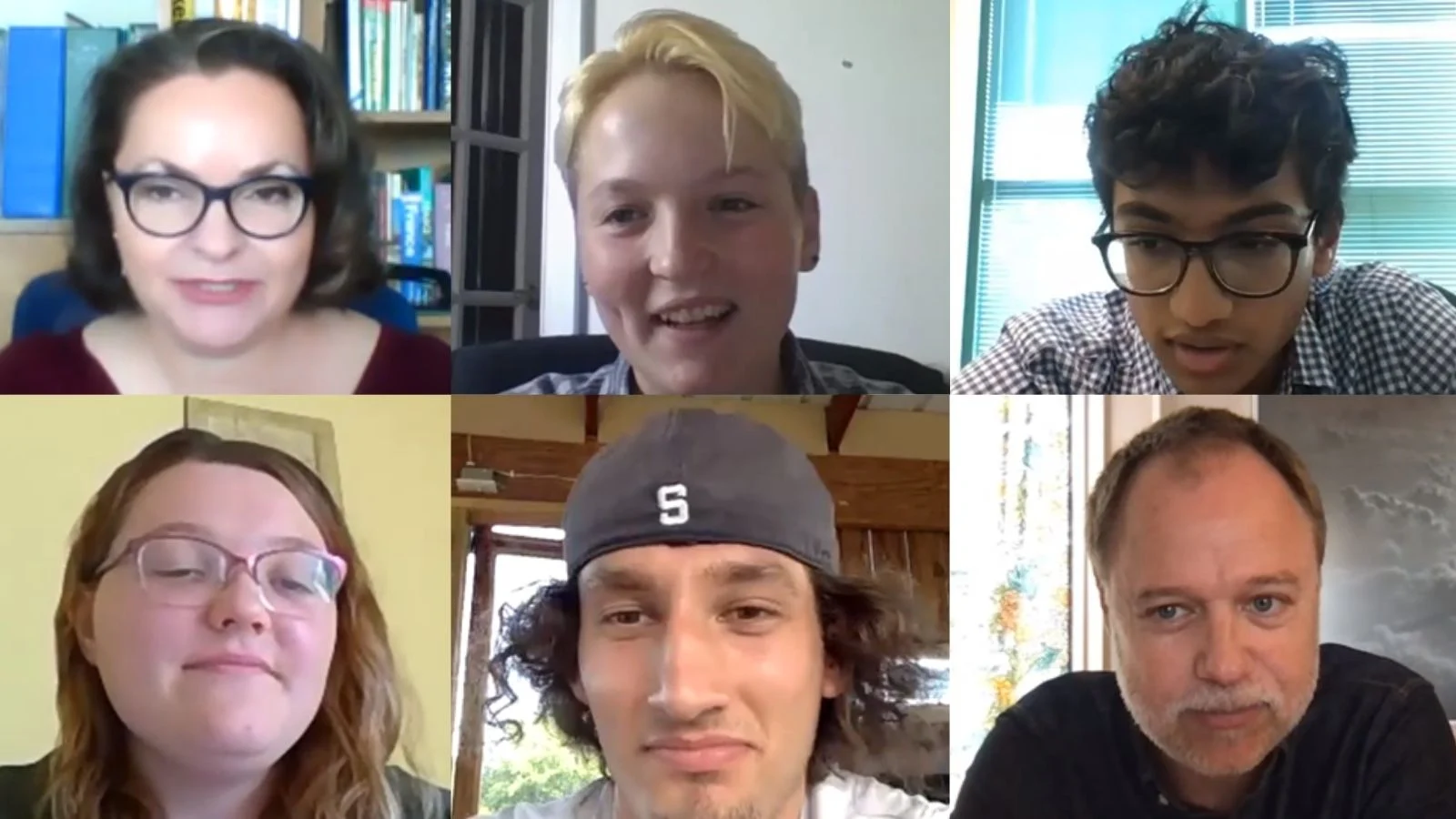
By Ben Laurenson
On July 20, members of the Maryland Sierra Film Club had the opportunity to watch the documentary Happening: A Clean Energy Revolution for free, thanks to The Redford Center. Highlighting youth activism, the panel discussion featured highly motivated Maryland youth involved in the sustainability movement and a guest appearance by Jonathan White, an associate producer of the film. If you missed the film, feel free to check out the trailer for a taste, and if you feel inspired, check out ways to take personal sustainable actions with a Long List of Simple Things!
Happening: A Clean Energy Revolution chronicles James Redford's personal quest to learn about clean energy. Redford, Happening’s presenter and director (now deceased), takes an uplifting, broadly optimistic approach to documenting clean energy’s rise through the lens of local and individual involvement. The film uses the canvas of personal interactions—largely personal interviews by Redford—to interpret institutional change and movement towards clean energy.
Redford’s own personal curiosity keeps the topic engaging and lively. His admitted partial ignorance of the energy industry encourages the viewer to relate to him. Happening deepens this bond by taking the viewer behind the scenes of the sometimes-opaque electricity industry, illuminating the surprising complexity of the systems that facilitate our energy-intensive lifestyles. It is clear that we must eliminate CO2 emissions. And we must do this quickly. Yet, since 1992, when the first United Nations Framework on Climate Change treaty was signed, CO2 emissions have only increased, and by 60%! The energy sector is a key component to addressing the climate crisis, as are the youth who have stepped up to play a leadership role. The film brings the two groups together in a uniquely educational way.
The lively panel discussion, kicked off by MD Sierra Film Club Moderator Sonia Demiray, included a quick surprise visit by Happening associate producer Jonathan White who answered questions from the panelists. Youth panelists included two college students of environmental sciences who also volunteer with the Sierra Club Maryland 100% clean energy campaign, Alex and Maggie, and two high schoolers. The highschoolers were Piper, a youth climate organizer with Sunrise Frederick, and Bavan, who is active with MAEOE’s Green Schools Program, a statewide initiative to make all schools emissions-free and trash-free, while simultaneously teaching students good environmental practices and stewardship.
A movement’s culture is made up of all the relationships its members have with each other. The power of like-minded people banding together for mutual support was a common thread in the discussion. Panelists related their own experiences of the benefits that the social element of sustainability can create for the policy side. Happening focuses on incremental, individual clean energy progress, such as residential solar and clean energy jobs, and was intended “to be used by community organizations ... to help spark conversations [and] really move the topic forward” according to Jonathan. Maggie spoke about how job creation in clean energy, everywhere from community solar and manufacturing in Buffalo, New York, to powering Apple data storage systems in Oregon, is a powerful motivator for those unsure of the economic case. Supporting and promoting community solar across Maryland with Sierra Club’s Ready For 100% campaign, she says, has given her increased insight into the burgeoning field of clean energy production.
Asked by Piper about what he learned in production, Jonathan replied that he had been unaware of his ignorance about clean energy. The issue of intermittency, or inconsistent availability of power from clean energy, also left a big impression. No matter how large your solar farm, without energy storage, it can’t provide power when clouds or night shut it down. The complications of scale and energy policy can also get complicated, as illustrated by Nevadans trying to secure residential solar. He got the impression that most clean energy change is happening at the local level, even though large projects or broad statistics might capture the most media attention.
Piper “appreciated the way that [the film] was relatable and...easy for a wider audience to understand. I also appreciate the bipartisanship that was shown, because in a lot of local areas you do see more of that on-the-ground: understanding between people and less political stances in a local, rural context like...in Nevada.” Adding on, Jonathan noted that “the political climate was pretty different when we made this and we really [wanted] to get some consevative voices out there... It’s more important than ever to try and find the arguments that speak to both sides.” The documentary was shot in 2016.
Bavan learned about the power of local engagement through the implementation of the Green Schools Program in his high school. As word spreads about their support for sustainability-minded folks in the education community, people in the wider community become interested and either want to help existing efforts or start their own. Alex echoed this idea, optimistic that as the movement gathers momentum, it will be easier to get buy-in at larger scales. The Maryland Sierra Club supports the clean energy movement, and appreciates the dedication of the panelists and all those who made Happening. For more information and ways to get involved, you can visit the film’s website https://happeningthemovie.com/take-action.
The recording of the panel discussion is available on the film panel archives.
Other resources and initiatives discussed by panelists:
- Green Schools Program https://maeoe.org/green-schools-and-green-centers/green-schools-program
- Sunrise Frederick https://sunrisefrederick.weebly.com/
- Sunrise Movement https://www.sunrisemovement.org/about/
- MaryPIRG Student Climate Action Coalition https://mscacoalition.wixsite.com/home
- Ready For 100% Maryland https://addup.sierraclub.org/campaigns/ready-for-100-maryland
- Sierra Student Coalition https://www.sierraclub.org/youth